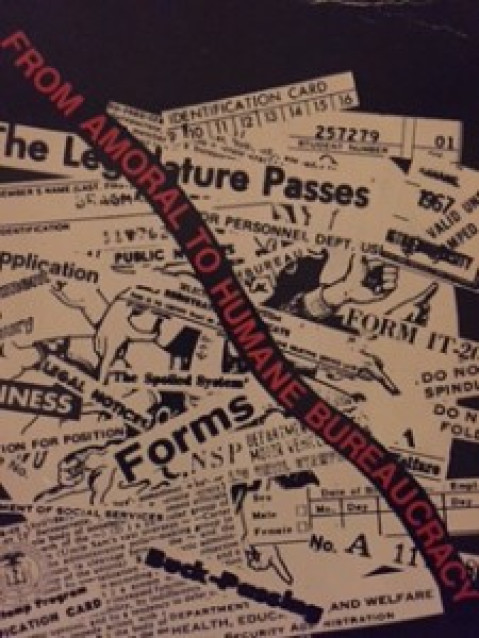Widgetized Section
Go to Admin » Appearance » Widgets » and move Gabfire Widget: Social into that MastheadOverlay zone
The Why of Public Service
The views expressed are those of the author and do not necessarily reflect the views of ASPA as an organization.
By Stephen G. Harding
March 1, 2016
 Last October, I presented a TED talk at the annual conference of the Municipal Management Association of Southern California (MMASC). The topic was, “The Why of Public Service.” Facing an impressive crowd of some 200 young, up-and-coming local government professionals, I started the session by asking them to contemplate “why public service?” The question was purposefully rhetorical and meant to engender a sense of personal introspection. For my intent, the question alluded to the lofty purposes, values and needs of our unique democratic system.
Last October, I presented a TED talk at the annual conference of the Municipal Management Association of Southern California (MMASC). The topic was, “The Why of Public Service.” Facing an impressive crowd of some 200 young, up-and-coming local government professionals, I started the session by asking them to contemplate “why public service?” The question was purposefully rhetorical and meant to engender a sense of personal introspection. For my intent, the question alluded to the lofty purposes, values and needs of our unique democratic system.
Why Public Service?
Most individuals, especially those early in their public service careers, routinely respond to this question by saying something familiar such as: I want to make a difference, improve the lives of others and contribute to the quality of life of my community. MMASC’s own mission statement underlines this point by stating: “Our Mission is Developing People. Developing Communities.” These are noble and necessary responses.
Yet, I am pressed to remember someone pursuing a public service career stating the need to facilitate our democratic principles or furthering civic responsibility. Given local government’s relatively recent acknowledgement of the need to facilitate the mechanics of civic engagement, I would like to think there does exist a latent understanding of society’s broader need to engage our democratic principles. Since I have not developed an empirical database that substantiates this claim, this assertion is at best a supposition. However, Terry Tempest Williams, in his book, The Open Space of Democracy, may best describe the intrinsic importance of this point:
“The human heart is the first home of democracy. It is where we embrace our questions. Can we be equitable? Can we be generous? Can we listen with our whole beings, not just our minds, and offer our attention rather than our opinions? And do we have enough resolve in our hearts to act courageously, relentlessly, without giving up—ever trusting our fellow citizens to join with us in our determined pursuit of a living democracy?”
It’s More Than Process, Reporting and Measuring Outputs
Through historic public administration theory up to and including the concepts of the New Public Management, efficiency and a businesslike approach to public service delivery has dominated the pubic sector conversation. Tending to one’s own career has required developing the requisite technical and managerial skill sets reflective of the precepts of viewing our constituencies as clients and customers while evaluating ourselves in terms of administrative, leadership and economic prowess. Hence, the necessary pursuit of career building knowledge has required a focus on the mechanics of government.
 In response, I would posit that the altruistic role of public service has become assumed and not a focused knowledge that needs to be acquired. Consequently, it may be argued that the focus on skill sets pertaining to efficiency, measurement, performance and reporting come at the expense of the knowledge of civics and the democratic needs of the population. As Eugene P. Dvorin and Robert H. Simmons stated in their book, From Amoral to Humane Bureaucracy:
In response, I would posit that the altruistic role of public service has become assumed and not a focused knowledge that needs to be acquired. Consequently, it may be argued that the focus on skill sets pertaining to efficiency, measurement, performance and reporting come at the expense of the knowledge of civics and the democratic needs of the population. As Eugene P. Dvorin and Robert H. Simmons stated in their book, From Amoral to Humane Bureaucracy:
“The end of public administration is not to execute public policy with utmost dispatch, with maximum efficiency or value neutrality—or any combination of the three. The refinement of technique is of low priority compared to the discipline’s need to define the public interest.”
It Is About Participation, Trust and a Sense of Common Purpose
H. George Frederickson, among others, has extolled the importance of knowing for whom government works. The Preamble to the United States Constitution makes it perfectly clear as to the relationship between government and the governed. As such, the public service should make every effort to partner with the people through democratic discourse and not just in terms of perfunctory processes.
A genuine commitment is demonstrated through an organization’s willingness to:
- Build collaborative partnerships with the public
- Open dialogues that develop an understanding of shared power and authority
- Re-evaluate its roles and relationship with is varying constituencies
- Place equal value on the knowledge of democratic principles with managerial and technical professional expertise
- Balance the requirements of the representative form of government with the public’s sometimes sporadic need for direct democracy
Structurally, there has to be a system that provides both the forum and mechanism for the conduct of the people’s business. As such, the tangibility of public service needs to manifest as the vehicle and framework that encourages active public involvement, facilitates the voting process and provides for the actual design of public policy and the delivery of public services. The intangibility of the process serves to promote civics and common purpose. Harland Cleveland’s work, The Future Executive, would suggest:
“We should try, we concluded, to help the maximum numbers of people—to maximize their ‘Morales’ by fulfilling their basic needs. This required that we try to describe the basic needs of modern man.”
- A Sense of Welfare
- A Sense of Equity
- A Sense of Achievement
- A Sense of Participation
I would hope future up-and-coming professionals would include the facilitation of democracy as an altruistic purpose of the public service. After all, it is all in their hands.
Author: Stephen G. Harding is a management and policy advisor to local government and a retired city manager. Throughout his 38-year career, he has served nearly 60 public, private, nonprofit and academic organizations. He is currently an adjunct instructor in the Master of Public Policy and Administration program at Northwestern University.






 (8 votes, average: 4.25 out of 5)
(8 votes, average: 4.25 out of 5)
Pingback: The Why of Public Service | PA TIMES Online | Practitioner-Scholar